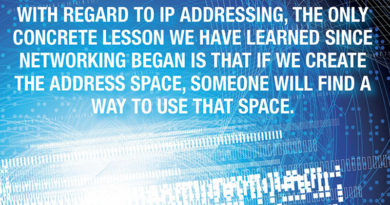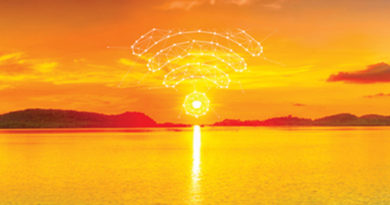It’s Time to Take the Gloves Off and Have a Serious Talk About Security
By Patrick Hunter
I know, we just discussed this not so long ago. But, if we’re being honest with ourselves, each day that passes gives us another news story about some company or nation-state being infiltrated by hackers for a variety of nefarious reasons. The Colonial Pipeline event that had real economic and practical effects for millions of people in May is a sign of the times. I’m normally not the doomsday type of writer who loves to tell the tales of woe and tragedies yet to come, but the indicators are pointing to an acceleration of hacking events, many of which are clearly financially motivated now that ransomware has become a regular method of attack.
We’ve discussed the pillars of information security and how they apply to our networks and places of work in the past. Keeping those in mind remains of the utmost importance. But, as the landscape continues to evolve, it has become clear that stealing personal information for the purpose of identity theft is beginning to take a back seat to stealing data for the purpose of holding it for ransom. Industry experts are recounting tales of large firms that have been hacked and their data encrypted for ransom who have told their attackers plainly “we don’t have that kind of money to pay you” only to be countered with a screen shot of their actual insurance policy for this type of event indicating that in fact the firm does have that kind of money by way of their insurance carrier. That’s a pretty extreme case, and maybe even a little trumped up for effect, but it is so reasonably possible that it should serve no less as a cautionary tale for everyone.
There have been discussions in the cyber security field around organizations (let’s call them organized criminals — why not?) that employ teams — even armies — of professional hackers dedicated to specific market segments based on their experience or prior knowledge. There is even talk of organizations that target private citizens, others that target small to medium businesses, and others that focus on firms above a certain market cap or revenue margin. Each group has learned how their specific “markets” require specialization in order to effectively execute an attack. This should sound eerily familiar to anyone who took a marketing class in college. The field of play is definitely evolving.
One important aspect of the Colonial Pipeline event is that it is currently noted as the largest attack on the energy sector to date. It is common knowledge that most of the world would be in a difficult place if access to energy was compromised. But, it underscores a more important point: What would happen if other pieces of our modern infrastructure were compromised or crippled? Most specifically, what would happen if the “Internet” itself were somehow attacked or hijacked? Is that even possible? Perhaps, perhaps not. But, if one pipeline that supplies 2.5 million barrels per day of jet fuel, diesel fuel, and gasoline across a significant portion of the eastern part of the United States could have the impact of surging gas prices and gas stations actually running out of fuel, what impact would a full Internet shut down have? (Yes, I recognize that this implies the attackers would likely remove their means of informing their prey of the attack and ransom. It’s an extreme example for illustration, folks.)
The reason this matters so much is that we the cable companies, esteemed members of this beloved and innovative industry, ARE the Internet. We’re not simply attached to it — we make up the largest portions of it from a physical infrastructure perspective. We cannot afford to take a casual, let’s-wait-and-see approach to our information security. The clock is ticking, it’s time to take a meaningful look at our means of protection, and how much we’d be willing to spend to never give control of our data to ransomware or a cent of our money to hackers.
 Patrick Hunter — “Hunter”
Patrick Hunter — “Hunter”
Director, IT Enterprise Network and Telecom,
Charter Communications
hunter.hunter@charter.com
Hunter has been employed with Charter since 2000 and has held numerous positions, from Installer, System Technician, Technical Operations management, Sales Engineer, and Network Engineer. His responsibilities include providing IP connectivity to all users in Charter’s approximately 4,000 facilities, including executive and regional offices, technical centers, call centers, stores, headends, hubsites, and data centers. Mr. Hunter has served on the SCTE Gateway Chapter Board of Directors since 2005. He spends his spare time mentoring, teaching, and speaking on IP and Ethernet networks as well as careers in the network field.
shutterstock




